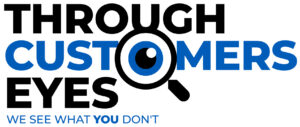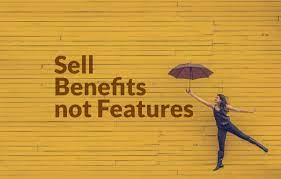An essential skill and a vital tool for sales is having product knowledge. This knowledge permits for the presentation of the benefits of the product or service correctly and convincingly.
Customers do not react to unexcited staff who have no enthusiasm or share any benefits of the products with them.
Having extensive knowledge about your products and where they fit in the marketplace is critical if competitors are to be dominated.
Sell the benefits NOT the features
The most important aspect of product or service knowledge is to sell the benefit and not the feature.
We may get excited about the bells and whistles of a product or service and focus on selling all of them, but this may not be what the customer wants. Statistics show that customers only use 20% of the features of a product that they buy. Making it complicated with an array of fancy bells and whistles may simply discourage them from making that purchase.
So, during the conversation with a customer, figure out exactly which features are going to benefit and what could be more important to them. It is not necessary to speak about all the benefits, so speak only of what is going to affect them. Anything more and they will ignore what is not needed.
Bells and whistles may be trendy but if it is not something that is going to benefit the customer, they will not care.
By having enough product knowledge, customers will then decide to make a purchase. This will help them to know that they can put their trust in you.
However, using this knowledge must be done with care. You don’t want the customer to feel that you are showing off, you want them to feel that their best interest is at heart.
So, remember to only talk about the features that will benefit the customer.
PRODUCT KNOWLEDGE TRAINING METHODS
First-hand experience
The best and easiest way for staff to learn is to try or use it.
A great example is the restaurant who gets their team members to try every dish, so they have a better understanding of what it tastes like, what’s in it. They can make recommendations and talk about it with enthusiasm and gusto. This kind of first-hand experience is far more beneficial than only hearing about it or seeing it in a pamphlet/brochure or menu.
Of course, first-hand experience cannot always be used, particularly in the case of specific industries. However, all types of technology are available nowadays, like AR – augmented reality and VR – virtual reality that can possibly be utilised for training.

Piece meal
Loading up the employee with an abundance of information during training can be over whelming and they will not be able to take it all in.
Training should be done piece meal. Each subject matter or concept needs to be to the point with major ideas focused on and relayed in short sharp sentences and done visually, if possible. This will be more effective and allow them to take in whatever it is they are learning as opposed to it going over their heads and immediately forgotten.
Role play
This is another method of learning where team members act out a scenario allowing them to learn to deal with a situation. Use of advanced technology can also be implemented to contribute towards their learnings.

On the spot training
This can be in the form of visual aids, app, or website that team members can access through their phone.
For example, a hardware store has so many various products. This form of training is ideal as the team member can access any item immediately to give a professional opinion that would meet the customers needs and items can be easily evaluated on the spot. This method would be valuable in the conversation the team member has with the customer and would assist in there and then decision making.
BENEFITS OF HAVING EXTENSIVE PRODUCT KNOWLEDGE
Promotes sales
When a team member knows the ins and outs of a product or service, they become confident. It becomes easier to sell, provide support and attract attention. Customers will see them as the expert and chances are that they will believe when told that your products are the solution for them.
Superior customer service
Customers like knowing that they can rely on you whenever they have questions about your products. If you aren’t completely knowledgeable about the minutiae of your products and how they relate to others in your field, you won’t have the answers to all your customers’ questions. As a result, it’s impossible for you to provide ideal customer service.
On the other hand, when you know all about your products, guiding customers through their difficulties becomes a breeze. Knowledge allows you to build better relationships with your customers, which in turn helps ensure they’ll stick with you. It will help with your customers trusting your product and your business as you will be seen as the experts.
Enthusiasm
When staff know little about your product, they will not be enthusiastic about it nor will they become instinctively intrigued about it.
The opposite is true.
A lot of knowledge about the product will increase enthusiasm and the intrigue to know more. When staff can speak in an informed manner about a product, along with providing answers to a customer’s questions, customers will see the enthusiasm and feel safer choosing your products.

Improves sales
It is more likely that your sales team will make sales if they know and understand your products as they will be able to speak about the value and how to use them.
Enhances staff and customer trust
Staff knowing that they will be able to answer any customer questions if they are a full bottle on the products will boost their confidence when communicating with customers.
If a customer cannot decide whether to buy or not, the amount of knowledge the team member has about the product might make the difference between the customer making the sale or not.

